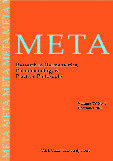The Discourse of Resistance in Huguenot Political Thought: The Role of the Estates General
Abstract
The political philosophy of the late Middle Ages had often approached the problem of tyranny, even attempting to provide possible solutions, but it was the sixteenth-century Reformation which turned this matter into the key issue of a new political model. France, in particular, experienced fierce disputes over this question, as the French Wars of Religion (1562-1598) saw the proliferation, to an unprecedented degree, which no one would have thought possible before, of theories of resistance against monarchical “tyranny”. At first, more timid, then, after the massacre of Huguenots on the night of Saint-Bartholomew (23-24 August 1572), with a much greater force, the Huguenots abandoned their previous position of unconditional obedience to the Crown: deceived in their expectations that compliance would earn them a degree of tolerance and protection, and confronted with a monarchy which, after Saint-Bartholomew, seemed to have embarked on a decidedly anti-Huguenot policy, the French Protestants turned instead to what they saw as the traditional legal limitations of the royal power in order to seek a solution from their predicament. A monarchy where the king’s will was firmly “bridled” by institutional constraints and the right of the subjects to oppose unlawful policies was given legal sanction seemed the best way to guarantee the safety of the Huguenots and justify their rebellion against the Crown. This paper argues that, during the first half of the Wars of Religion, from 1562 until 1576-1577, the Estates General of France played a significant role in the Huguenots’ theory of resistance, who advocated its convocation as a way to solve the realm’s troubles and argued in print for its right to take an active part in deciding the policy of the kingdom, as an alternative locus of sovereignty which could even overrule the king.
Keywords: Huguenot political thought, Monarchomachs, Estates General, Wars of Religion, tyranny, discourse of resistance
[Full Article PDF]




